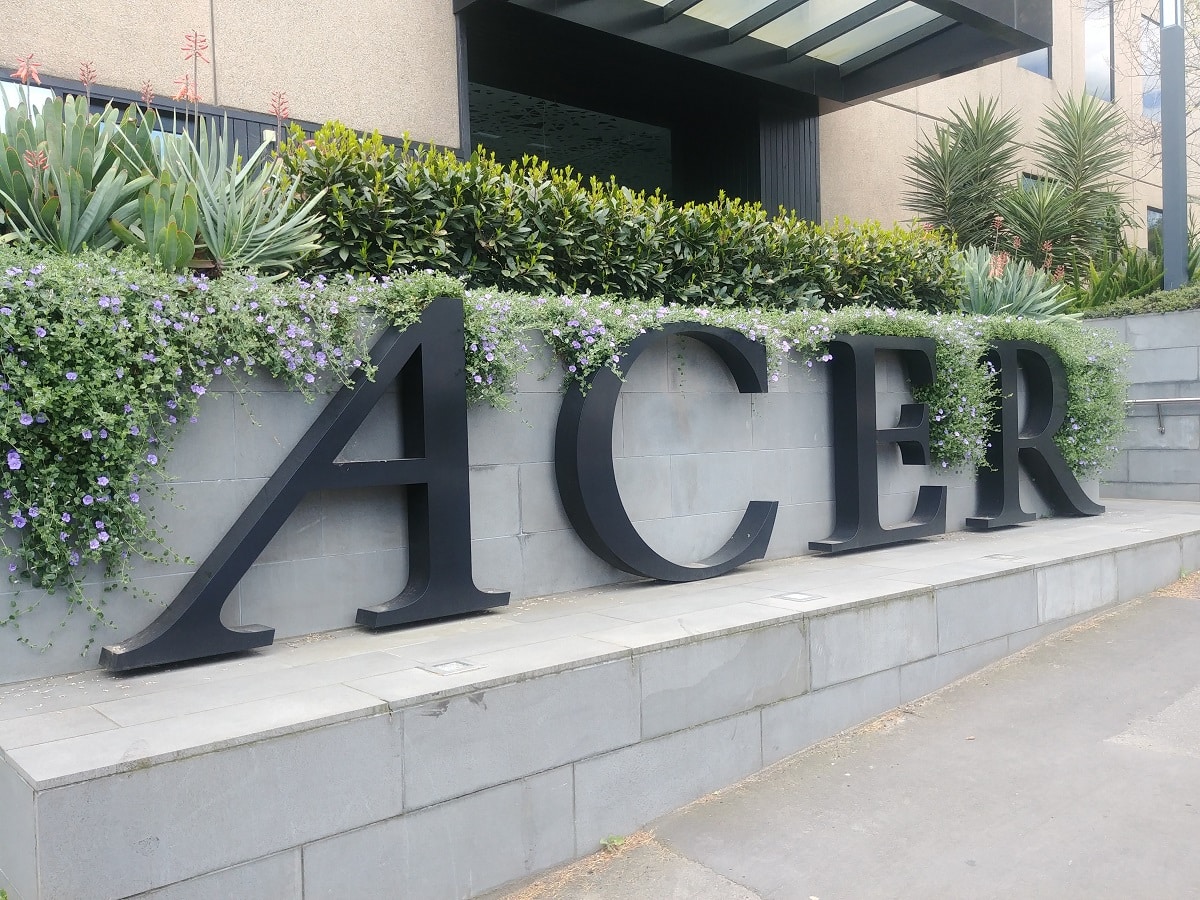
Preparing for the ACER Test – Australian Council for Educational Research Assessment
ACER Testing is recognised both in Australia and globally as a testing system to measure people’s aptitudes for a job or training course they are applying for.
For example, many students entering the medical profession across the world are familiar with the Health Professionals Aptitude Test (HPAT) which measures their suitability for a medical career. But the range of ACER Tests extends beyond that.
ACER Tests are used globally to measure candidates’ skill levels when they apply for a place at a college or university, a job, or want to access further education courses.
In Australia, the tests are used to identify students with exceptional abilities who may be deserving of a scholarship or to assess if people from abroad applying for university places in Australia have the abilities for the course they have applied for.
Table of Contents
What are the ACER tests?
The ACER tests, or the Australian Council for Educational Research tests, are aptitude tests that students take when accessing further study courses.
The range of tests includes:
- CSPA The Core Skills Profile for Adults
- VST Vocational Selection Test
- Special Tertiary Admissions Test
- SYLF Senior Years Learning Framework
Under each of the above headings, you can expect to do some or all of the following aptitude tests:
- ACER verbal reasoning test
- ACER quantitative reasoning test
- ACER abstract reasoning test
- ACER mechanical reasoning test
Who takes ACER tests?
If you are facing the ACER tests, you probably fall into one of the following categories.
You may be:
- A student preparing for school assessments and/or higher education assessments
- A student applying for admission to third-level colleges
- An adult preparing for vocational or workplace assessments
- An employee being tested by an employer who needs to determine your skills
- A student doing an ACER scholarship test
- A prospective student doing a LANTITE language and numeracy test for Initial Teacher Education students
The ACER tests span a wide range of students and adults. As well as providing testing for schools, universities, training colleges and workplaces, ACER’s idea is to encourage continuous learning and inspire people to see education as a lifelong experience.
What is the purpose of the ACER tests?
The tests are designed to give a picture of the candidate’s strengths and weaknesses.
Your results come in two formats. You can consider the first format as your real score, i.e. the number of questions you answered correctly.
The second format shows your placing among the number of people who took the test. This shows you how you measure up against your peers.
Can I prepare for the ACER tests?
Preparing for the tests is essential as ACER tests are challenging. Getting good scores is necessary for many career and study options.
When preparing for the tests, it is advisable to use the services of a test preparation company. For this, we recommend Job Test Prep. With many years of experience in helping candidates prepare for tests, they will give you accurate information about ACER assessments and reliable test preparation materials.
Their test preparation materials come in a test prep pack and include sample test papers modelled on the real tests, helpful explanations of questions and answers and a means of checking your scores as you work through the tests.
Working on sample papers as you do your preparation guarantees:
- You become more familiar with the format of the tests with each sample paper you do
- You can monitor your progress from test to test and quickly pick up on errors you are making
- You train yourself to work within the time limits of the tests
- You can approach the tests with confidence, knowing what to expect and how to deal with it
What format do the ACER tests take?
The format depends on the test you are doing. Your first task in preparing for the assessments is to get a clear idea of what specific test you are required to do.
Given the wide range of tests available, you may need to get a test prep pack to get a clear idea of the specific test layouts.
However, there are tests that the vast majority of candidates have to do. Verbal, abstract and quantitative reasoning are the skills all candidates can expect to be tested on.
Verbal Reasoning Test
You can expect to be presented with one of two different verbal reasoning tests.
In the first test, you can expect a chart containing information on a topic. Your task is to study the chart, sift through the information and then answer a number of questions on the information you have studied.
If doing the second type of test, you will be given a passage to read and questions to answer on the information given in the passage. Doing both of these tests, you are required to restrict your answering to the material you are given.
Try your hand at this free sample verbal reasoning test.
Abstract Reasoning Test
This test is non-verbal and assesses your deductive and inductive reasoning skills.
Generally in abstract reasoning test, you are presented with shapes and diagrams that follow a rule or pattern. You have to study the pattern to decide what rule it is following and then select the diagram/shape that would best complete the pattern.
This is a multiple-choice test and one that requires a great deal of practice to not only answer the questions, but to complete the test on time.
Try your hand at the following inductive reasoning question.
Example question:
The shapes in the top row follow a certain pattern from left to right. From the bottom row, select the shape that you think would be the best to complete the sequence in the top row. Remember to work out the pattern in the top row before you select the shape you will add to the sequence.
Abstract reasoning tests are an assessment of your general mental abilities. As with all ACER tests, you can expect the test you are given to be geared to the educational level you are at.
To get an idea of the challenge of doing abstract reasoning tests when working against the clock, try this free sample inductive reasoning test.
Quantitative (Numerical) Reasoning Test
This test will assess your mathematical skills. The test looks at your ability to deal with numerical information.
The numerical reasoning test repays careful preparation. You have gained your numerical skills throughout your education. However, using these while also keeping an eye on the time is something that regular practice will hone.
Test your skills with this free sample numerical reasoning test. Checking your scores will give you an idea of how well you performed and of the areas you may need to continue working on.
Vocational Selection Tests
These tests recognise the importance of selecting a vocation that aligns with your abilities. The HPAT mentioned above is one example of this. Tests given are specific to a certain occupation or course you are applying for.
The ACER Mechanical Reasoning Test (ACER MRT)
The mechanical reasoning test is given to candidates who want to pursue a career where mechanical skills are needed.
If you are one of these people, you will be tested on your ability to understand the connection between different mechanical components.
The test does not require you to have any prior mechanical knowledge but assesses if you have the ability to acquire the skills needed if working or training in the mechanical field.
However, it will be helpful to have some understanding of the following:
- Wheels
- Pulleys
- Weights
- Levers
- Conveyor belts
In this test, you will answer 42 questions in 20 minutes. You will be presented with drawings or diagrams and required to answer multiple-choice questions on them. The test can be taken online or with pen and paper.
Test your mechanical skills with the following free sample mechanical reasoning test.
ACER (TEEM) Test of Employment Entry Mathematics
TEEM tests the abilities of trainees and apprentices where the applicant will need to work with mathematics.
In this test, you will have to do 32 multiple-choice questions and will receive questions on:
- Percentages
- Fractions
- Other numerical concepts
You can expect to be working under time pressure when doing the test. Thus, solid preparation is essential if you are to avoid making the errors that stress can cause.
Online Writing Assignment for Adults (OWAA)
This test shows ACER’s commitment to continuing education. The test is designed for people contemplating a return to education, students enrolled in Pathway programmes, people in the workplace, or anyone committed to lifelong learning.
In this test, candidates are expected to produce a piece of writing. Assessors look at the written piece to decide how well the ideas flow and to judge the writer’s use of spelling, punctuation, and grammar.
Assessments can be combined
A lot of the main tests are made up of a combination of tests. For example, the OWAA detailed above can be added to Core Skills Profile for Adults.
The CSPA is a combination of the writing test, reading test, numeracy, abstract reasoning and mechanical reasoning. It is widely used in Australia and, as an adaptive test, is adjusted to the skill levels of candidates taking it.
The first ten questions on the CSPA determine your skill level. All following questions are adapted to the skill level you display.
The Senior Years Learning Framework (SYLF) is an Australian educational qualification used to test students progressing to university or the workplace.
The ACER Scholarship test’s aim is to discover exceptional students and give them the opportunity to progress onto third-level education.
Preparing for the ACER tests
As the list of tests indicates, it is important to have a clear idea of the tests you will be doing before starting your preparation.
An ACER Aptitude Test Practice pack will provide you with the material you need for your practice. With your prep pack to hand, it is time to put a preparation routine in place.
To make your preparation effective, try the following tips:
- Draw up a timetable and decide to stick to it.
- Leave the day before the tests free for last-minute reviews and to get some rest in preparation for the tests.
- Set aside a designated place to carry out all of your preparation. We all work better when following a routine.
- Work in short bursts of time. 50-minute study spells followed by 10-minute breaks is recommended for effective learning.
- Build ten or so minutes for revision into the end of a day you are preparing.
- Preparing for assessments is stressful. Make sure you get adequate sleep, nutrition and fresh air while preparing. Your brain will work better as a result.
Use your sample papers
Use your sample papers as the backbone of your preparation. As you work from test to test, you will find your answering skills improving and your confidence growing.
You begin to recognise your strengths and weaknesses and become more aware of what you should work on before doing the real tests.
And as for dealing with the dreaded time restrictions of the tests, you will probably fail initially but with practice, learn how to master it.
Doing the assessments
Experts know that preparing for the day of the assessment is probably as important as the information and knowledge you gather for the test. For this reason, you must prepare for the day.
Approach the tests well rested and clearheaded. An all-night study marathon prior to doing the tests will only guarantee you will not perform to your optimum.
A clear head will guarantee that you will be able to capitalise on the hours of work you put in.
It will also guarantee you can face the tests confident in your ability to give them your best shot!
Written by Elizabeth O Mahony
With 25+ years’ experience as a teacher and state examinations corrector, Elizabeth now writes for the education and careers industry. Her experience preparing students for examinations and running an academy for supplementary education give her invaluable insights into what it takes for job seekers and graduates to succeed in assessments.
Sarah is an accomplished educator, researcher and author in the field of testing and assessment. She has worked with various educational institutions and organisations to develop innovative evaluation methods and enhance student learning. Sarah has published numerous articles and books on assessment and learning. Her passion for promoting equity and fairness in the education system fuels her commitment to sharing insights and best practices with educators and policymakers around the world.








